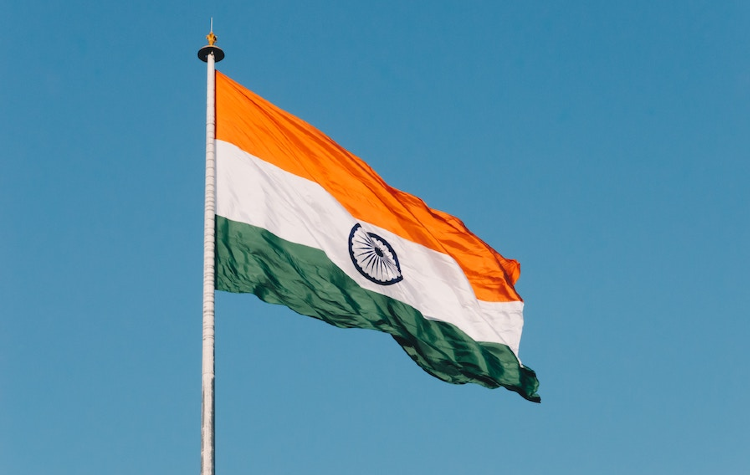Kathmandu, Nepal (13 September 2024) – The Asian Forum for Human Rights and Development (FORUM-ASIA) strongly condemns the imposition of curfews, restrictions on the internet, and disproportionate use of force in Manipur amidst ongoing protests.
These actions undermine fundamental human rights and exacerbate the already volatile situation.
Ongoing crisis in Manipur
Since May 2023, Manipur–located in northeastern India and governed by the ruling Bharatiya Janata Party (BJP)–has been engulfed in violent ethnic clashes between the Meitei and Kuki communities.
The conflict erupted over issues related to the sharing of economic benefits, land rights, and quotas in government jobs and education. At least 225 people have since died and 60,000 displaced, according to government figures.
After a brief lull, the conflict re-escalated on 1 September 2024, when fighting broke out between the two communities. Some attacks involved the use of drones to drop explosives, claiming at least 11 lives.
Student-led protests then emerged, demanding the removal of Manipur state’s top police official and security advisor for their alleged failure to control the ongoing conflict. Protestors also expressed their frustration over the authorities’ inability to address the root causes of the said conflict.
The police blocked the student’s march towards the Raj Bhawan (Governor’s Residence). The police reportedly used excessive force against protestors, employing tear gas and stun grenades to disperse the crowd. Around 45 people were injured in the clashes.
The government has further intensified the situation by imposing a 5-day state-wide internet shutdown, suspending mobile data and VPN access under the pretext of preventing “misinformation.” On 12 September 2024, the authorities in Manipur lifted the restrictions on broadband, while other restrictions persist. Pertinently, Manipur has a troubling record of using prolonged internet blackouts to suppress dissent, including the world’s longest in 2023, which lasted over 5,000 hours.
On September 11 and 12, authorities also ordered the closure of public and private colleges in Manipur.
Despite the protracted and violent nature of the conflict, the Indian Government–led by the BJP–has only offered a muted response. Allegations of complicity have also surfaced against the local BJP-led government. This includes a potentially incriminating audio recording submitted to the Commission of Inquiry, which the Ministry of Home Affairs established to investigate the violence in Manipur. The said audio recording allegedly features the voice of a high-ranking politician who supports the use of 51 mm mortar, lethal military-grade bombs during the unrest in parts of Manipur in 2023.
A Manipuri human rights defender, who wished to be anonymous for fear of reprisals stated: “The Indian government has failed to protect the people of Manipur by allowing the ethnic conflict to simmer. Inquiry commissions must submit their reports, and urgent action is needed before the situation worsens.”
Human rights defenders, including journalists, in Manipur are facing increasing risks. Most recently, on 11 September, unidentified assailants shot at the house of Yambem Laba, a journalist and former acting president of the Manipur Human Rights Commission. Laba, a long-standing critic of Manipur’s Chief Minister, had recently signed a press release by the Good Governance Party accusing him of “abandoning” the Meiteis.
Previously, other human rights defenders and civil society actors have also faced similar threats and harassment for their criticism of the government and/or radical extremist groups in Manipur.
Mainstream media has also been accused of perpetuating biased narratives, often framing the Manipur conflict as a religious clash between the predominantly Hindu Meitei and Christian Kuki communities, while overlooking the deeper ethnic, economic, and political complexities. Selective coverage–as influenced by powerful groups, political interests, or fear of reprisal–could further distort the portrayal of the situation.
United Nations experts have also highlighted the “inadequate humanitarian response” in Manipur, calling for timely and robust investigations to ensure accountability.
Despite this, the international community has made minimal efforts to address the continuing human rights violations.
Call to action
FORUM-ASIA urges the authorities in Manipur to immediately halt the use of excessive force against peaceful protesters and to lift the arbitrary internet shutdown.
We remind the government of its duty to protect people’s fundamental rights, including freedom of expression, peaceful assembly, and access to information. We call on the state government to respect and uphold its obligations under international human rights law, particularly the International Covenant on Civil and Political Rights.
The authorities must also prioritise the safety and security of HRDs and journalists, and ensure they can carry out their work without fear of reprisal.
“Instead of resolving the root causes of the conflict at hand, the Manipur state chose an iron-fisted response. Such actions stifle legitimate dissent and perpetuate a culture of impunity,” said Mary Aileen Diez-Bacalso, Executive Director of FORUM-ASIA.
“FORUM-ASIA is in solidarity with the people of Manipur. We call for an immediate end to the ongoing human rights violations. The Indian Government must engage in meaningful and transparent dialogue, initiate reforms to restore peace, and ensure accountability for perpetrators,” Bacalso added.




